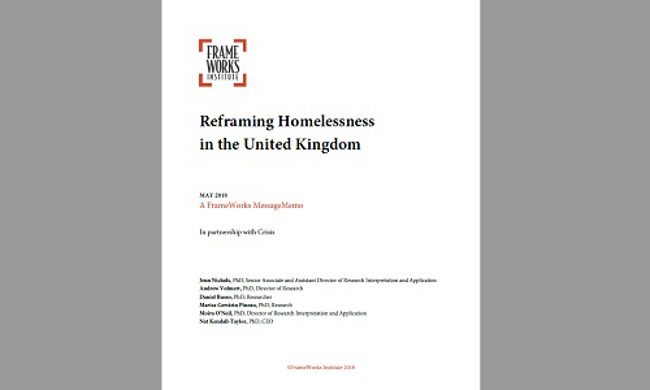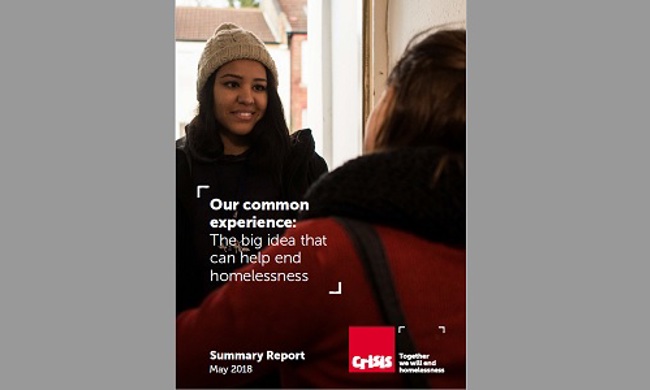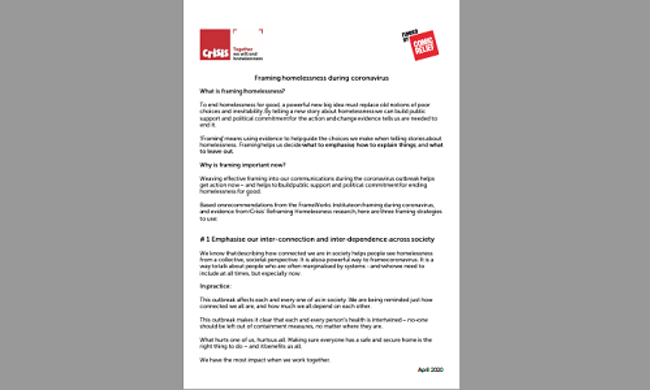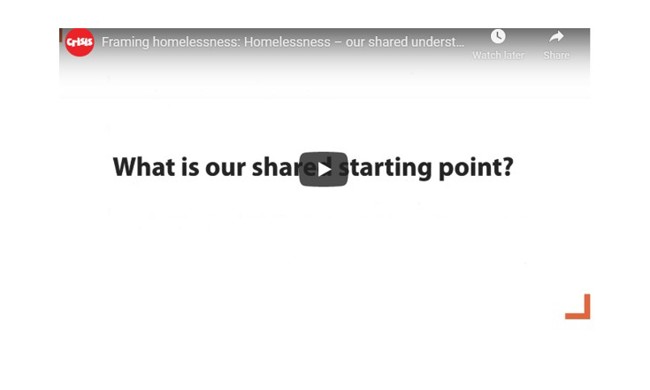Reframing Homelessness in the UK: A FrameWorks MessageMemo (2018)
21.05.2018
Homelessness isn’t inevitable. We can change the way we frame homelessness to build public support and political commitment to action and change. Crisis has commissioned the FrameWorks Institute to undertake a study examining public perceptions of homelessness and how they can be better communicated. This report is the second phase of a two year project which provides a response to the communications challenges identified in the first phase of research.
Key findings
Through on the street interviews, face to face testing and a series experimental surveys with over 10,000 people the research concludes that strategies exist to shift public thinking in new directions and can be achieved by telling a new story about homelessness and following these recommendations:
- Use the value of Moral Human Rights to connect and drive policy support – saying clearly and powerfully that everyone has a right to dignity and respect and it is part of basic humanity increases people’s responsibility for addressing homelessness
- Using the value of Interdependence to place the issue of homelessness in a social context - this helps to highlight what affects one of us affects all of us
- Explains what causes homelessness using the ‘constant pressure’ metaphor – by giving people vivid and true-to-life ways of explaining how homelessness happens by talking about issues such as the pressures of poverty and high housing costs
- Tell a wider range of stories about the lived experience of homelessness – only talking about rough sleeping taps into people’s existing mental image of homelessness. Talking about other forms of homelessness including those in temporary accommodation or sofa surfing can be combined with the constant pressure metaphor to bring context to the story
- Avoid othering language that creates a distance, evoking sadness and or pity for ‘them’
- Direct people to concrete solutions such as social housebuilding or providing personalised support to get homeless people back into work – this can help people understand that homelessness is preventable and a solvable issue
- Find different ways repeat the message across all communications including fundraising appeals – the research found that integrating new frames can shift attitudes without undermining donations
- Avoids claims that we are all at risk of homelessness – it does nothing to shift attitudes or policy support because it conflicts with people lived experience and recognition that some people aren’t at risk of homelessness
Reference:
Nichols, J., Volmert, A., Busso, D., Gerstein Pineau, M., O’Neil, M. and Kendall-Taylor, N. (2018) Reframing Homelessness in the United Kingdom: A FrameWorks MessageMemo. FrameWorks Institute.




